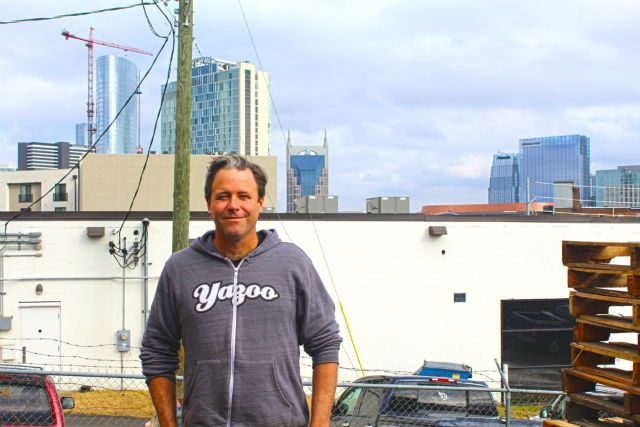
Sitting on the patio of Yazoo Brewing near downtown Nashville, with construction buzzing all around from new hotels and other businesses, Linus Hall jokingly announced that he was closing the brewery for a week in late April/early May of 2018.
Why? He kidded that after seeing the crush of people at the 2017 Craft Brewers Conference to all the Washington DC establishments that Yazoo would “get killed.”
“We are anticipating having our butts handed to us, in a good way,” he said. “I think some people might come [to Nashville] with low expectations on the beer culture here, but I hope we will represent well and blow some people’s minds.
“We have a diverse amount here. It makes that pie get bigger, but it’s being cut up different ways and it keeps growing.”
The diversity shows and Yazoo, which opened in 2003, has its hands in a few slices of that pie since opening Embrace The Funk in 2012. What started as a fun side project now has its own facility and it so happens that the brewery’s Funk Fest is the day before CBC 2018 kicks off in downtown Nashville.
“The Yazoo brand is known for quality and consistency, Embrace the Funk are one-offs and some people want to see them again, but that’s not what it is,” Hall said. “So it’s nice to see people enjoy both sides of us now. We can always have that consistency but also appeal to those beer geeks that just want to grab a few and send one of those bottles across the country and trade for something they can’t get.”
Hall added that he’s had people from as far as Sweden contact him to say they love the products they are drinking, which is great, but 85 percent of the business done for the brewery that produces more than 24,000 barrels is still within 100 miles of Nashville.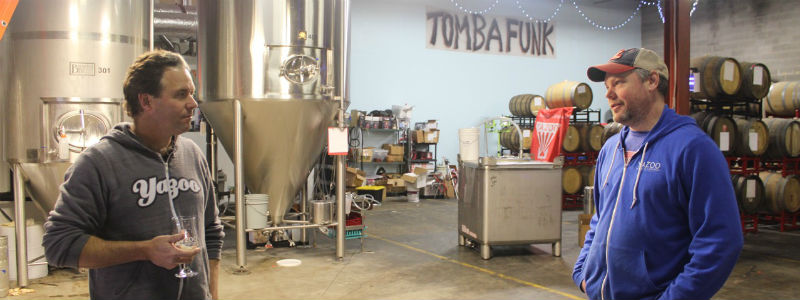
“Beer is best when you know the people that make it,” he said. “My favorite beers come from people I know. Even though there is a lot of great people out there with a lot of great beer, I like to have that connection and support my friends.”
That personal connection has helped the brewery grow and stay close to home with only a few markets outside of the state of Tennessee that sell Yazoo brands.
“It’s best when you have a personal relationship with that brewery and you might come back again,” he said about consumers. “But you have a connection and you might see it in the store and remember that connection you had and it feeds off of itself.”
Breweries that don’t have a niche are having a bit more problems, Hall noted. Finding what a brewery does well and not being all things to all people can be helpful, he added.
For Nashville, and the Southeast in general, clean and refreshing beers with flavor have been the key. Hall pointed that there is still an opportunity in rural and suburb areas of Nashville even.
“There are still pockets of Nashville where craft is still very new so we have four people just working within 100 miles of Nashville,” he said of his sales staff. “We work to keep our beers on tap at places that like to rotate out taps frequently. But we still want to go to places that you don’t think will be craft accounts. We talk them into putting one of our SKUs in where they don’t have much craft at all.
“Where we went in 10 years ago, they might not have had any craft on tap. Now they’ve seen the light and they have 16 taps on now. But we need to keep staying out ahead of that curve. There are so many new local breweries starting up and places that might have had four or five of our taps are trying to keep everyone happy by having a tap for everyone in town. It’s gotten harder and more expensive to sell the same amount of beer in Nashville than five years ago.”
Although funky or hazy beers are fun, the sales cater to those that may not even know anything more than light Lager still.
“Back when we opened our Pale Ale was the most bitter thing they’ve ever tasted around here and it’s only like 40 IBUs,” Hall recalled as he talked of how he started the business with just a growler going into establishments to see if they would try his beer.
“Mainly what I would do is I would go in and say, ‘Hey you know. I’m in a business owner just scraping by like you and trying to get some taps.’ I’d pour them some samples, if they liked it, we would talk, otherwise I didn’t want to waste their time. It’s was an education back then, you had to explain why the Hefe Weizen was cloudy, why the yeast was still in there.”
Hall says he still falls back on the philosophy that distributors have to be a great distributor. Most recently, the brewery moved into Charleston, South Carolina, and only because Hall felt that going with a new distributor that focused only on craft would make his brand a priority.
“We probably were never going to sell beer in Charleston anyway, so let’s see what happens,” he said. “Can you get somebody to work in the market efficiently for you. Do you have a good distributor? If we’re successful are we going to be on their mind or second fiddle to some of the A-B brands?
“Even if you’re out there generating your own sales, legally you have to wait for somebody else to take it from Point A to Point B. There is nothing you can do about that.”
Hall is a Mississippi native, and a University of Virginia alum. He moved to Nashville to work for Bridgestone Firestone and be a tire engineer. His homebrewing roots while in college led him to a local homebrew group and it sparked a continued interest to where Hall eventually went to Vanderbilt to get his MBA and take the American Brewers Guild program with an internship at Brooklyn Brewery in New York City.
“I think once you get that planted in your head you start doing more research and I realized [Nashville] was kind of an untapped market down in the Southeast,” Hall said.
Teaming up with a fellow ABG grad, Hall and his wife started to get the ball rolling for an eventual 2003 opening. It was what Hall called a ‘bootstraps’ beginning, buying used, fixing and creating what he could on his own and eventually selling the beer out of his truck to start.
“When we opened up in 2003, we saw that brewpubs had a good following,” he said. “If you wanted fresh, handcrafted beer then, that’s where you went was to a brewpub. You couldn’t find it in stores or on taps somewhere.
“I would go in with beer in my pickup truck and a growler and have them taste the beer. They would say “That is pretty good.” and I would tell them I had a keg in the back and I could bring it in and hook it up right for them. They would ask which distributor I was with and I would tell them I wasn’t with one, I’m just here to sell them the keg I have and they would go, “hell, that’s crazy, sure, go ahead and do it.”
Once, Hall had someone tell him they already had all four kinds of beer.
“’What do you mean?,’ I asked. They said, ‘We have Bud Light, Coors Light, Miller Lite and Heineken. And you know we just don’t have room for another beer,’ I said, ‘Well I’ve got got some hose and a faucet, I can drill a hole in the wall for ya,’. They thought it was crazy, but they would let me do it.”
And that tap is still a client of Yazoo’s.
Hall’s original business plan was to get to about a 1,000 barrels after a couple of years and 5,000 by Year 5. The driver would be as a private label creator of beers.
The original thought was to get people turned on to Yazoo beers offering a service to make a unique beer for each restaurant.
“I said I would sit down with a chef and Bar Manager and come up with a beer they are going to like,” Hall said. “If they liked it, we would keep making it for them. Just for them. I figured I could get 20 places to do that and it would be manageable, and then our own beers would get out there as well and we could transition those customers to our own brands eventually.
“The first couple of accounts we would let them try something of ours, like our Pale Ale. And they liked it. They would try “Dos Perros” (the brand’s Brown Ale) and then the Stout and the Hefe and they wanted to go back to the Pale Ale. So I said, yeah, we can put something similar on for you and they just wanted the Pale Ale. I knew we had plenty of that. So the idea of custom brewing went away since our own beer took off so fast I had to throw that part of the business plan out.”
By the sixth year, Yazoo was capping out its 5,000 square foot facility that was a former car factory.
“As we started to outgrow it, we asked our landlord if we could have some more space but it was an old building and falling apart,” Hall said. “It was a cool place to have a drink but it was a terrible place to make beer. It was a big Tetris game every brew day. It was amazing how little of space we had left there, so around 2008 … I started to look for more space to grow and bought this building which is 25,000 sq ft and upgraded to a 40-bbl brewhouse with more tanks.
“I could see the kind of growth curve were were on and we were just physically and completely out of space.”
The current facility — which Hall has on the market because by 2017 they had capped out on what was to be their forever home — opened in 2010.
“You know I would have been happy if it was just kind of a lifestyle business and I could have made a nice salary and pay the bills, but it quickly grew much faster,” he said. “We had kids about the same time as we opened the brewery, so the brewery is like another kid for us. You want to see it grow and succeed. You have to just keep feeding it what it needs and it takes a life of its own.
“It went quick, from 8,000 barrels in the first building and then we moved here and it grew to 21,000 quickly as well.”
The growth is nice, but the taxes are not in Tennessee. About $40 per barrel is tax money for Yazoo, which deters growth opportunities.While there is strong demand for craft beer, Hall said he didn’t want to get outside investors.
“That could always lead to a fight down the road. So we bootstrapped our way in,” he said, noting that he borrowed some money from family and bought a used 10-barrel system from a brewpub that had gone out of business in the area.
“We kind of grew out of cash flow from the beginning,” he said. “It’s great because you can sleep real well at night with no worries of bank debt or investors telling me how they want it to go. But it kind of limits how fast you can grow and want you can do. Especially since the government is taking such a big chunk out. So that’s the challenge is doing the things that we absolutely have to do to have the best quality and keep up with demand. A lot of times it means not spending money on certain things that we would like to. It would be nice to have, but we can do without for a while.”
The important things was the lab and getting out quality beer first and foremost.
“Things that were not necessities just have kept getting either bought used or put on hold,” he said. “It’s a challenge, but it’s like that for almost every brewer in the world I think.”
Of course, he noted, there is more money involved now and he thinks some newer breweries kind of get to leapfrog past where Yazoo started.
“But mainly it’s the taxes that have held us back and some antiquated laws held us back here for a long time since the cap was six percent,” he said. It wasn’t illegal to make beer that high,but a brewery in Tennessee had to have a special license and it wasn’t considered beer, it was considered the same as liquor and only sold in liquor stores.
“So even if you could make it, you had to jump hoops for that license,” he said. “You only had 500 places in the state that you could sell it through. And at that time, liquor stores here just didn’t care about the product. They have gotten a lot better, but at the time they didn’t really care about your beer.
“There would be a shelf near a window, it was hot and you had some bombers with dust on them. So we got some laws changed thanks to the guild we started up in 2011.”
Those law changes, along with changes in fellow states have helped spurn growth for craft beer in the region as it is now just getting the wheels going. It’s a fortunate time for a regional brewery like Yazoo that can look to grow in many neighboring states if Hall would like.
“I think the Southeast is the last growth opportunity for a lot of breweries, for the ones starting up here and also the big regional and national brands,” he said. “People know styles now. But some of the niche beers we are branching out into now is still the whole education thing all over again.
“Here’s a sour beer…it’s not vinegar, it’s a wonderful acidity. It’s oaky flavors, fruity flavors. We didn’t see the sour craze take off for years around here, I just loved those beers and Brandon [Jones] wanted to do that project, so it was something to try and see how far it can go.”
With such a vibrant food culture in Nashville, Hall believes if a brewery can get a consumer away from just a light Lager and pair things with beer, you can see light bulbs go off for the drinker.
“I had really admired what Garret Oliver has done,” he said of his former internship boss. “He’s accomplished so much in New York City and had written books on pairing beer with food.
“After we got down here, the breweries that have done well make beers with flavor but you can have three or four in a sitting. That was a key for me when we opened was that we couldn’t have big beers in this environment. For one, people hadn’t had it yet the climate is hot, you want refreshing and have a few. That’s how we started, a wide range of flavors and textures, but all clean finishes to them.”
With the penchant for those types of styles — which some could call classic — Hall was able to bring back some local history and tie Yazoo even closer to its home with its Gerst Amber Ale.
The Gerst Brewery was one of the biggest in the Southeast until Prohibition. Hall added that there was still a family that had a Gerst Haus restaurant and they had a lot of memorabilia and were trying to find a brewery that would make the old Gerst beer for them.
“They found a brewery in Evansville, Indiana that did it for them and then Pittsburgh Brewing made it for them,” Hall said. “Once we moved in 2010 to the new place and we had some capacity to do it, I approached them about adding some draft lines at the restaurant and said I would love to make Gerst for them. I thought it should be made in Nashville and they thought it was a fantastic idea.”
The family didn’t have a lot of the recipes other than the light Lagers Gerst made, and the family wanted an Amber Ale.
“I did some research into what they would have had then to make an Amber and find something they liked,” he said. “We resurrected some of the old branding and the old label. We were originally going to just make it for the restaurant, but some places around town wanted it as well and it was neat to be able to do it.”
When the beer debuted in 2011, then mayor Karl Dean was there for the debut.
“We had it in a cask and he said it was a great connection of Nashville’s brewing past with its future,” Hall said. “It was a wonderful thing.”



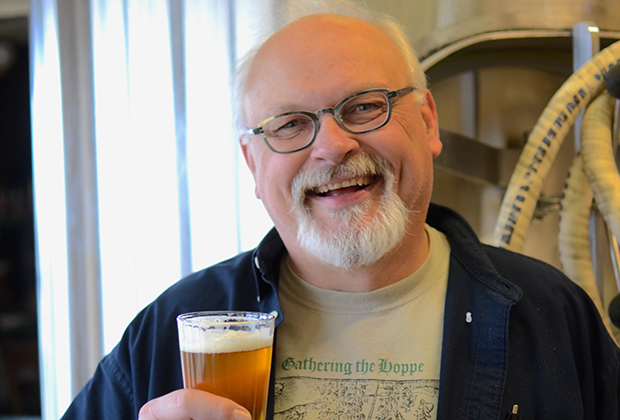
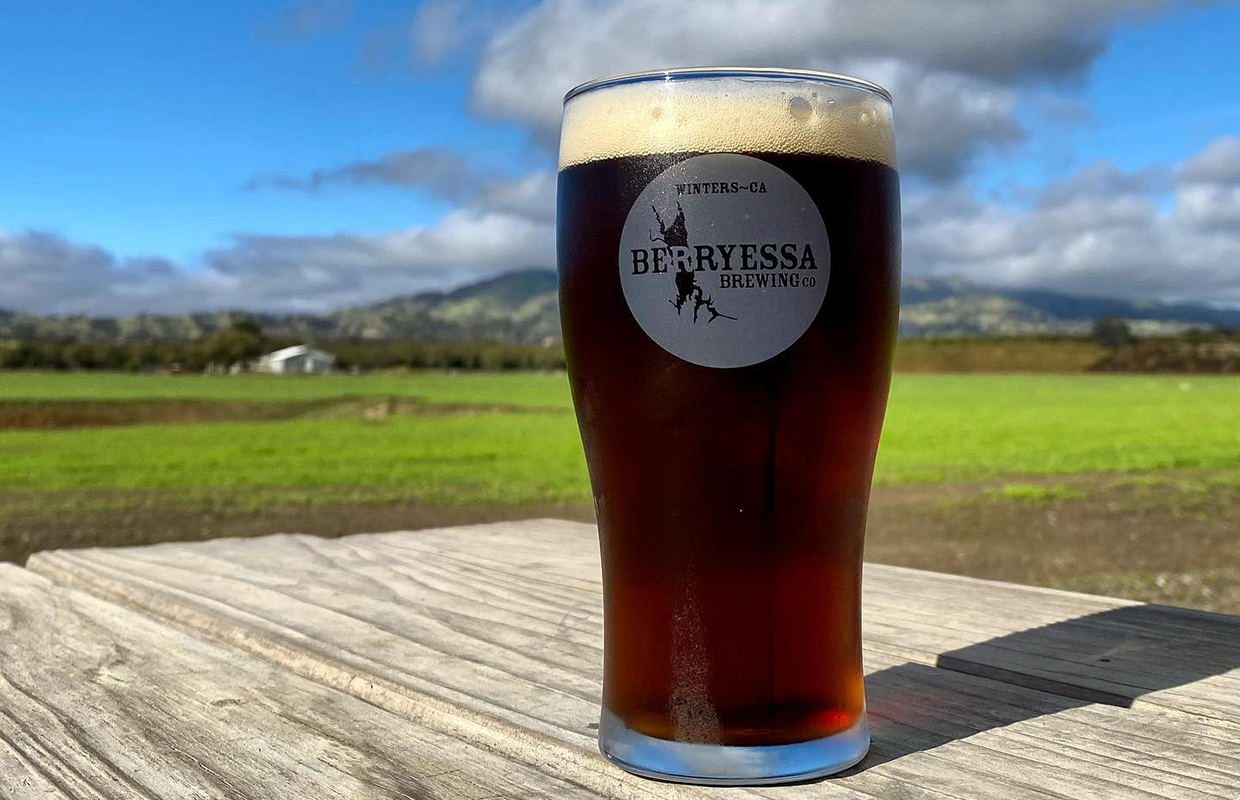
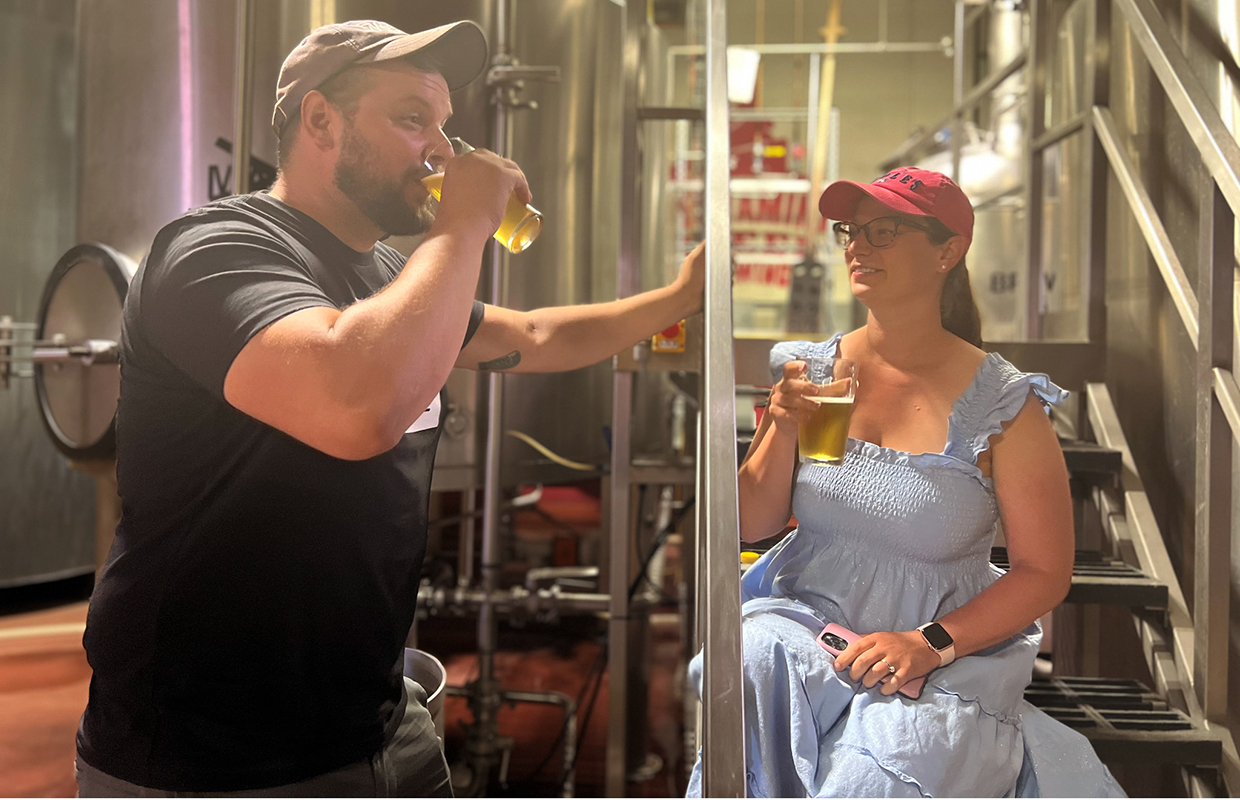
1 Trackback / Pingback